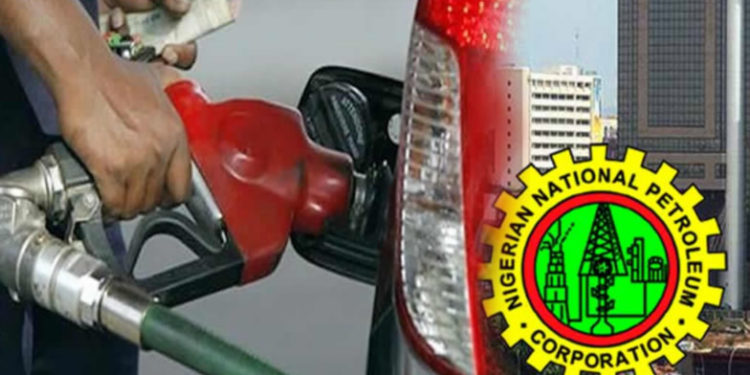The Nigerian National Petroleum Company Limited (NNPCL) and fuel marketers, represented by the Independent Petroleum Marketers Association of Nigeria, clashed once again over the removal of subsidy on petrol. This dispute arose amidst the depreciation of the naira against the United States dollar at both the official Investors & Exporters Window and the parallel market.
As of Tuesday, the official market recorded a closing rate of 998 naira/dollar, while the black market saw a rate of 1,225 naira/dollar. Economists and oil marketers argued that the subsidy on Premium Motor Spirit (PMS) was increasing due to the falling naira rate. However, the NNPC contested these assertions, stating that it was recovering its full importation cost of petrol.
CEO of Financial Derivatives Company, Bismarck Rewane, clarified during a television program that fuel subsidy was not removed but reduced. Meanwhile, oil marketers argued that considering the decline of the naira against the dollar and the cost of crude oil, PMS should be priced at around N1,200 per litre in a free market.
Petrol, exclusively imported by the NNPCL, currently sells for N617 to N660 per litre in Nigeria. The National Public Relations Officer of the Independent Petroleum Marketers Association of Nigeria, Chief Ukadike Chinedu, projected that the subsidy on petrol was rising, and the commodity’s cost should be approximately N1,200 per litre in a free market. He emphasized that the government is subsidizing the price to some extent.
Ukadike expressed optimism that the cost of refined petroleum products would decrease once the Port Harcourt and Dangote refineries start production, reducing the need for importation. The Centre for the Promotion of Private Enterprise CEO, Yusuf, suggested that the government retained the subsidy partially due to economic, social, and political considerations. Additionally, the NNPCL reported 112 cases of crude oil theft in the Niger Delta in one week, along with the discovery and destruction of illegal refineries and other related incidents.
























